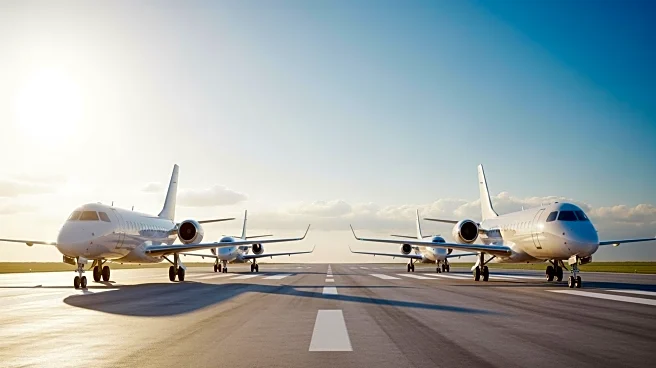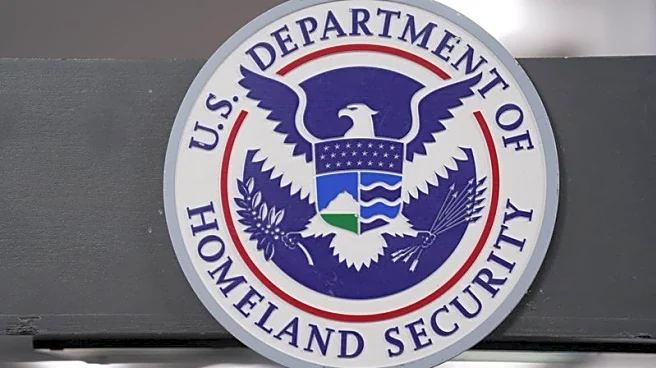What's Happening?
Iraqi Airways has expanded its fleet by adding 13 new aircraft as part of a strategic initiative to modernize the country's aviation sector. This move is aimed at persuading the European Union to lift
a flight ban imposed on the national carrier since 2015 due to safety and compliance concerns. During the Iraq Transport, Logistics & Airports Exhibition & Conference (ITL Expo 2025) in Baghdad, Iraqi Transport Minister Razzaq Muhaibis highlighted the progress made in fulfilling 78% of the requirements needed to remove the ban. The airline, which currently operates over 40 aircraft, plans to increase its fleet to 53 by 2027, including the addition of its first Boeing 787. The expansion is part of a broader effort to reopen routes to Europe, Asia, and the Middle East. Additionally, Iraq is upgrading its airports, with significant improvements at Nasiriyah and Mosul airports, and an expansion of Baghdad International Airport to accommodate 15 million passengers annually.
Why It's Important?
The expansion of Iraqi Airways and the potential lifting of the EU flight ban could significantly impact Iraq's connectivity with Europe and other regions, enhancing trade and tourism opportunities. The modernization of the aviation sector is crucial for Iraq's economic development, as it seeks to integrate more fully into the global economy. The lifting of the ban would not only boost the airline's operations but also improve Iraq's international standing in aviation safety and compliance. This development could lead to increased foreign investment and partnerships in Iraq's aviation and transport sectors, fostering economic growth and job creation.
What's Next?
Iraqi Airways will continue to work towards meeting the remaining requirements to lift the EU flight ban. The European Commission's acknowledgment of progress suggests that further improvements in safety and compliance could lead to a reassessment of the ban. The airline's expansion plans, including the acquisition of new aircraft and airport upgrades, will be closely monitored by industry stakeholders. Successful lifting of the ban could prompt other international carriers to consider partnerships or code-sharing agreements with Iraqi Airways, further enhancing Iraq's aviation network.











